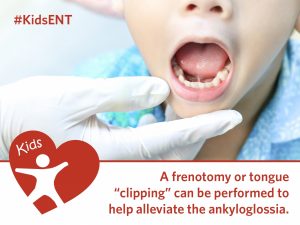Prevent Childhood Tooth Decay
Sunday, December 29th, 2019
Good dental health habits in children are an important foundation for a lifetime of dental health. Developing good oral hygiene habits in youth leads to continued habits in adults. This February we observe Children’s Dental Health Awareness, brought to you by the American Dental Association. Observed each February, this year’s theme is “Fluoride in Water Prevents Cavities! Get it from the tap!” Since 1945 America’s water fluoridation has grown to service 70% of all our drinking water supply. Fluoride still proves to be the most effective defense against dental caries.
Tips for Children’s Dental Health

In addition to drinking fluoridated water, here are some other general tips for good dental health in children:
- Brush teeth twice, daily, with a toothpaste containing fluoride.
- Clean between teeth daily, by flossing.
- Limit sugary beverages and snacks
- Visit your dentist regularly for cleanings (every 6 months from the time teeth appear)
Causes of Dental Caries in Children
Frequent Snacking

Children are notorious for frequent snacking. But repeated exposure of sugary or starchy foods can increase your child’s likelihood of tooth decay. Acid-producing bacteria feed on the sugar that’s left on teeth. The acid produced by the bacteria eats away at tooth enamel, causing cavities. Besides the obviously sugary foods, sugar can hide in nearly all kinds of foods. It would be impossible and even detrimental to good nutrition to try to eliminate all foods containing sugar.
Instead, strive to limit excessively sugary sweets or eat them with other nutrient-dense meals. The saliva produced during meals helps neutralize the acid from bacteria and rinses away any food particles.
Bottles & Sippy Cups

Very young children can develop tooth decay from sucking for prolonged periods on bottles or sippy cups. To prevent this it’s helpful for your child to finish all bottles before going to bed. It is also recommended that your child switches to a regular drinking cup by their first birthday. Sipping from a cup is a different motion than sucking from a spout or bottle and decreases the occurrence of tooth decay.
The choice of drink is also important for cavity prevention. Limit sugary sodas and juices, even milk with higher fat content. Healthy drink options, both for their bodies and teeth, are water or low-fat milk.
Cavity Prevention Habits

Teach your children to brush their teeth thoroughly and for an appropriate amount of time. Have them sing twinkle, twinkle little star in their head while they brush (or sing it for them). You can also invest in a fun toothbrush that blinks for the amount of time they should brush. Closely monitoring their tooth brushing ensures that they are getting their teeth clean.
Finally, schedule their dentist appointments every six months or as recommended by your dentist. Children should begin to visit the dentist from the time their first tooth appears, or at a year old – whichever comes first. Choose a dentist that specializes in pediatrics so that it’s an enjoyable experience for your child. A positive attitude about dentists and oral hygiene will lead to long term dental health.
Be sure to visit our National Wellness Calendar for more resources on Children’s Dental Health Awareness Month.
Common Reasons to Visit a Pediatric ENT
Saturday, December 28th, 2019
This February, we observe Kid’s ENT Health Month. Children experience a myriad of ear, nose and throat illnesses like ear infections, sinus infections, asthma, allergies, even hearing and speech delays. Many of these issues may be initially handled by your child’s pediatrician. But recurrent illness may need to be referred to your local Pediatric ENT.
Children’s Ear, Nose and Throat Issues
Tongue Tie
From the time of birth, children may need the expertise of an ENT. Last year, we focused on spreading awareness about ankyloglossia, or tongue tie. As infants, children may struggle to breastfeed or even bottle feed due to ankyloglossia, which hinders the movement of the tongue. Increased awareness over the last 20 years has led parents to ENTs to perform a simple corrective surgery called a frenotomy. This in-office procedure has a quick recovery time with a very low risk of complications.
Tympanostomy Tubes
Some children have repeated difficulty with ear infections. With frequent or lengthy bouts of ear infection, your pediatrician may refer you to an ENT for Tympanostomy tubes. Built-up fluid in the ears can lead to temporary hearing loss as well as discomfort. The procedure involves drilling a small hole in the eardrum, suctioning out whatever fluid may be trapped there, and inserting a small tube. These tubes allow air to reach the middle ear, providing relief from the built-up pressure.
Snoring and Sleep Apnea
Mouth breathing or snoring in children are other indications that a trip to the ENT may be necessary. Nasal obstructions can lead to blocked airways that hinder a child’s breathing. This can exhibit itself as noisy breathing, a runny nose and sleeping with the mouth open. There are various causes for these obstructions such as swelling from allergies or infections, a foreign object, or a deviated septum. Your pediatric ENT will be able to assess the cause and proceed with the proper treatment.

Children who snore experience what’s termed Sleep Disordered Breathing. Two to four percent of those children who snore also experience Obstructive Sleep Apnea. With Sleep apnea, the airways are completely obstructed for a brief period of time, causing the body to behave as though it’s choking. Blood oxygen levels drop, blood pressure rises and sleep is disrupted.
Snoring in children can usually be attributed to enlarged tonsils or adenoids. In children who are overweight, it may be due to fat deposits that gather around the throat and thus narrow the airway. All children who snore experience some level of disrupted sleep.
Improper breathing at night causes poor sleep quality, which can lead to other problems. Irritability, mood swings, hyperactivity, and slow growth can all be attributed to insufficient sleep due to poor sleep quality.
For all these ailments and so many others, we value our Pediatric Ear, Nose and Throat Doctors. Visit our National Wellness Observance Calendar to view other resources on Kids ENT Health to help educate you and your workplace. Our 2020 National Wellness Observance Calendar is Free to Download, so you can stay up to date on other important health observances throughout the year.



